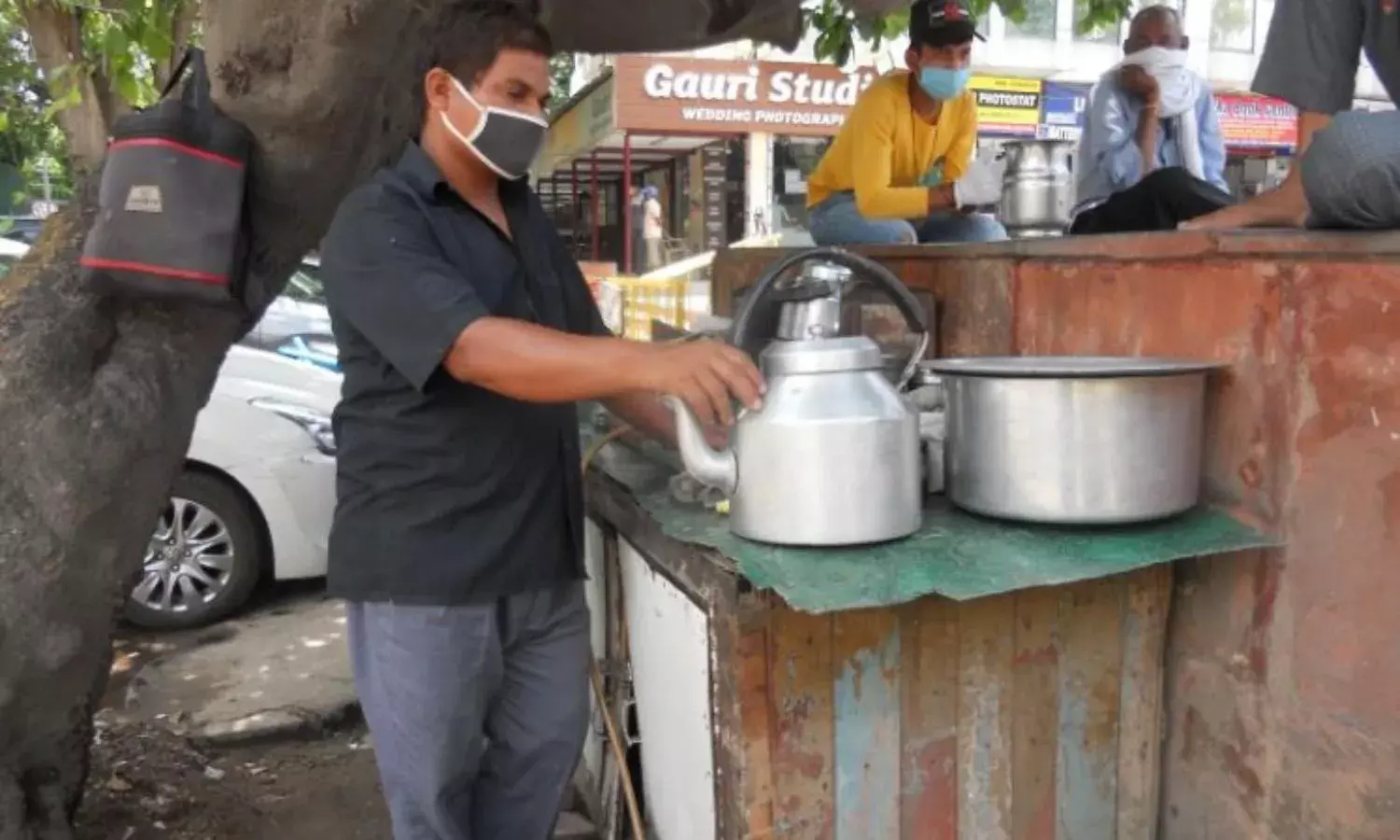'I Can Only Wish to Die': Earnings Crash for Roadside Tea Vendors
'I'm so disturbed by the current situation that I can only wish to die';

NEW DELHI: There was a time when roadside tea stalls in the capital were bustling with activity. Customers would gather in number at the small makeshift kiosks to grab a cup of hot milk tea with ginger. That was before the lockdown.
Now, a week into Unlock Number Something, business for tea vendors is far from normal. The pandemic has caused distress to the extent that some tea vendors have shut shop to move back to their villages, while others are doing odd jobs to keep their tea stalls running.
A 10-year old boy was the lone custodian of a tea stall in Ashok Vihar. “It’s his uncle who runs the tea stall. The shop-owner is away, pulling a rickshaw to earn his daily wage, while his nephew is looking after things over here,” says a bystander.
Tea vendors who were selling 10 litres of tea every day are finding it hard now to sell 1.5 litres. With infections relentlessly on the rise, customers are wary of having a cup of tea from a roadside tea stall.
“I’m so disturbed by the current situation that I can only wish to die,” says Prakash Jha, a tea vendor who hails from Bihar.
“Shops are opening, but people are too scared to place an order. They do not want to have tea in cups touched by our hands,” added Jha who has been running a tea stall for the past 27 years.
Some tea vendors did not head back to their villages after the lockdown, because their families are here in the city with them. The owner of Mandal tea stall, who doesn’t want to share his name, says he is hopeful things will change 3-4 months from now.
“Most of my customers are daily wage labourers who have gone back to the villages. Business is down to only 20 percent of its normal level,” he tells The Citizen.
Many vendors are aware of the importance of maintaining good hygiene. “I keep sanitising my hands throughout the day, and always wear a mask as well,” says Matadin, who owns the Bhagwandin tea stall.
He opens his shop from 6:30 am to 7 pm every day, but goes back home with only 25 percent of his usual daily income.
In the endless wait for the next customer, some were anxious to talk and share their plight.
With a gentle smile, Gopal Sharma says he hopes to fight his way through this phase of adversity. “I’m selling 30-40 cups of tea as opposed to 200 hundred cups. Things should normalise in six months or so. It’s better to open shop and hope for the best,” says Sharma, whose hometown is in Nepal.
“We’re getting by somehow, selling 1.5–2 litres of tea a day. Opening a shop is better than staying at home. I’m wearing a mask and ensuring a certain level of physical distancing between people who visit my shop,” says Mukesh Kumar, a roadside tea vendor from north Delhi.
In the absence of emergency support from their governments, these vendors have been left to hope and pray that things improve.
“Everything is in God’s hands. I’m hoping for things to turn around soon,” says Mukesh Kumar.
Abhishek Talreja is a Delhi-based freelance writer, poet, and journalist

